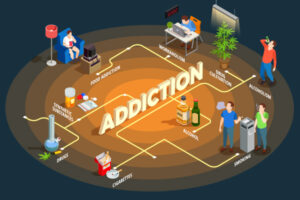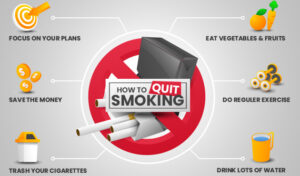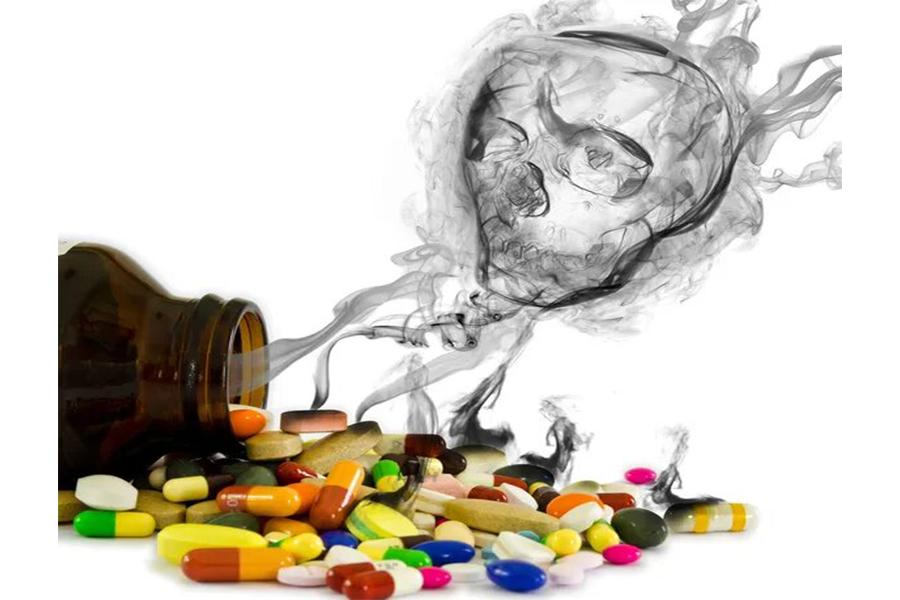Patrick Carnes once said that “addiction is a relationship, a pathological relationship in which obsession replaces people.”
what is Addiction?
Addiction is a disorder that affects the way our brains think, function, and process information. People who are addicted to drugs or alcohol do things over and over again that give them short-term pleasure but hurt them in the long run.
An addiction disorder is defined by a scientific panel as a condition in which a person engages in addictive behaviors, such as excessive work or cocaine usage, but these behaviors are not limited to these substances.
The effect on Addiction
Addiction has a significant impact on a person’s brain. It impairs decision making and has an effect on a person’s psychomotor skills. They can induce depression, Alzheimer’s disease, sleeplessness, bipolar illness, anxiety, conduct problems, and psychosocial dysfunction. Suicidal thoughts and attempts are common among addicts.
How to deal with Addiction

Addicts have little or no awareness of the odd or unusual nature of their behavior, and they have little or no control over their urges. Substance abuse takes a toll not just on the body but on the addict’s emotional well-being as well. Addiction is a disease that spreads easily and has serious consequences for the people who are close to the addict. Recovery from addiction requires a multi-pronged approach. Addiction is a long-term illness and one of the world’s most serious health issues.
How to Cope with Drug Addiction
Here are some strategies for beating addiction:
- Enroll in a rehab facility.
- One of the key steps to overcoming drug addiction is to do this.
- Professionals in good rehabilitation facilities are trained and skilled in dealing with addicts and assisting them in overcoming their drug addiction.
- It can also be energizing to interact with people who are struggling with drug addiction and see how hard they are working to overcome it in order to lead healthier lives.
- Ask your family and friends for support.
- When it comes to kicking a drug habit, the love and support of your loved ones can be very helpful.
- This can assist identify dependency and possibly convince you to stop this repulsive habit.
- Therefore, don’t be afraid to bring up this issue with them; they’ll be more than happy to assist you in breaking your addiction.
If you quit using drugs, you can have withdrawal symptoms. You’ll need medication to treat these symptoms, which also helps you avoid relapsing.
Medication will assist treat the health problems brought on by drug addiction, which also need to be fixed.
The measures to prevent Addiction
The adage, “prevention is better than cure,” emphasizes the significance of taking steps to avoid addiction in the first place. Treatments, therapy, and the use of drugs are all part of preventive measures. In order for the addiction programme to be successfully implemented, there must be an option for acknowledging the problem rather than denying it. The addict may be subjected to a great deal of trauma during treatment, so the family plays an important role. Having access to emotional and psychological support is quite beneficial when going through the withdrawal process. Addicts must be careful to avoid situations that could set off their cravings for addictive substances.
A myth:

It has been shown that drug users frequently have hallucinations, in which they perceive unreal objects and sounds.
Hallucinogens like salvia, mescaline, LSD, psilocybin mushrooms, and ketamine are drugs that are specifically recognized to cause them.
Venereal illness
Drug addicts in your family and circle of friends may find out about your drug use, which might exacerbate preexisting conditions.
They typically steer far of their spouse, children, and/or parents.
They quit hanging out with other friends and frequently mingle only with fellow drug users, which might make them awkward in social situations.
Conclusion
Many diseases and disabilities are brought on by drug use and addiction worldwide. Recent developments in neuroscience may contribute to bettering public health policies that aim to lessen the harm that using alcohol, tobacco, and other psychoactive substances causes to society.
Drug abuse can result in behavioral issues that have a negative impact on a person’s personal and professional lives.
The person needs to overcome this addiction as soon as they can.
Long after quitting drinking, a person could still have trouble changing his behavior for the better.
It may be beneficial to seek professional assistance from a mental health professional if addiction is significantly interfering with your everyday life or causing you substantial discomfort.
Learn more: Mental Health Awareness
& Mobile Phone Addiction & Teenagers
Shruti Dua, Blogger, BSc. (Psychology)

